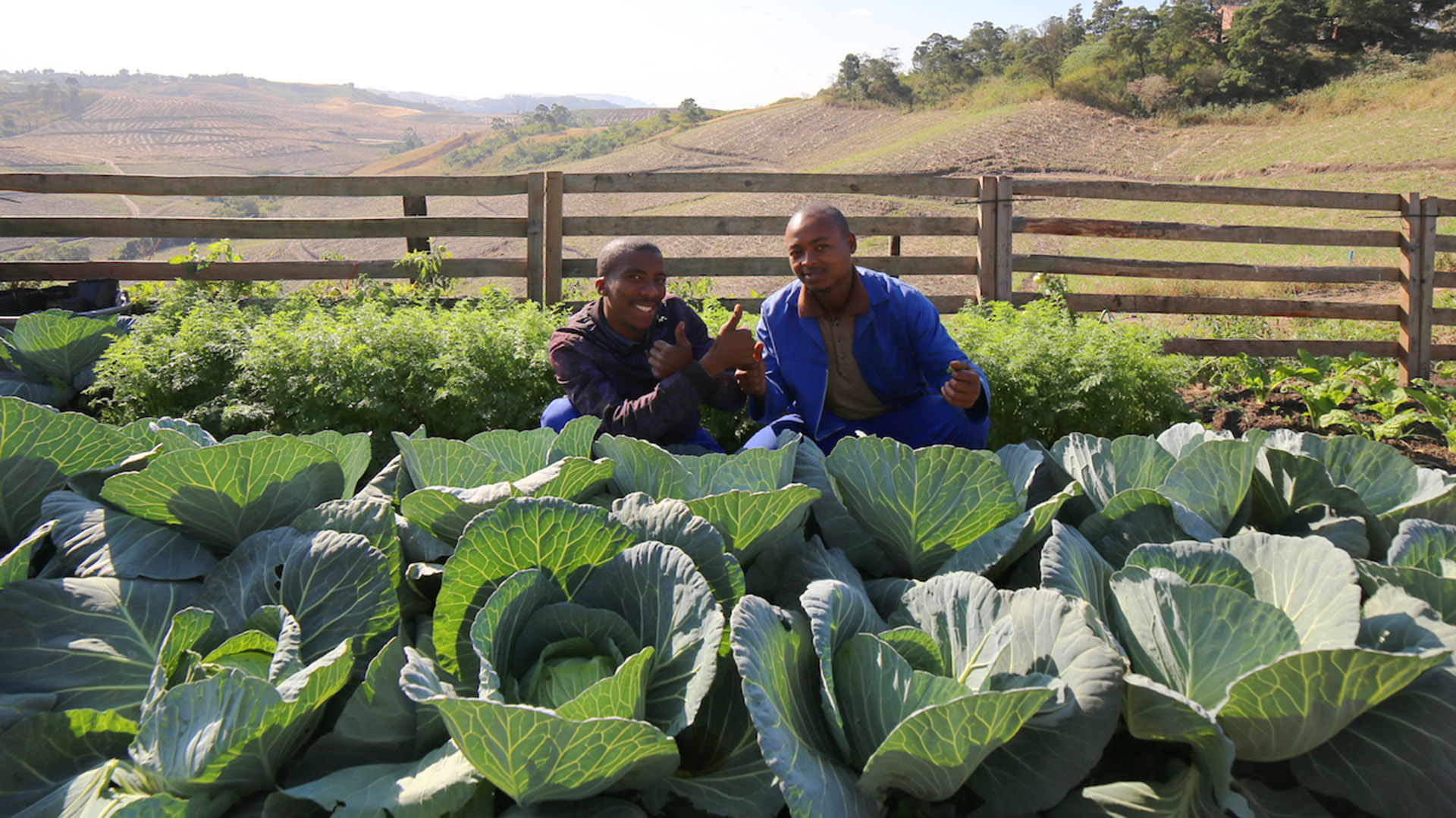Thanda has been able to bring young and old together to improve their lives through agriculture, working hand in hand with the Mtwalume community. The community-based group has developed and implemented creative ideas for long-term growth through its Organic Agriculture Program.
The program was motivated by the desire to change the system and give everyone the opportunity to have a better life.
Thanda is a non-governmental organization that focuses on childcare and agricultural skills training and has a large membership in the KwaZulu-Natal area.
They provide one-of-a-kind long-term development solutions and work to make communities safer and stronger by providing educational and skills development opportunities. Its purpose is to inspire people to make positive changes in their own lives, their communities, and eventually on a global scale.
Thanda was formed in 2008 by Angela Larkan, Executive Director, and Tyler Howard, Program Director, to support children through after-school activities in rural KwaZulu-Natal. This followed two years of field research.
Share knowledge and practical skills
The initiative made use of community resources that were already available: They hired and trained unemployed youth to work as babysitters for the after-school program.
What sets this group apart is their agriculture-based approach to solving socio-economic needs.

In an exclusive interview with Food For Mzansi, Thanda’s program director Sibusiso Msimango, also known as ‘Raah’, gives us insight into how their agricultural program has helped them make a difference in their community.
“Food is a right, and yes, people can buy it in stores. But what about those in rural regions who cannot afford it and have no money? So we decided to investigate ways to reduce hunger, especially among young people, ”he says.
Thanda decided to impart agricultural knowledge that has been lost in South Africa for decades. This includes the practical side of organic farming, such as knowledge of the soil and planting skills (composting, mulching, watering, spacing, seedlings) and how to use organic fertilizers effectively.
They also offer a training model on self-development, global perspective and confidence building, as well as on how to track production from soil preparation to consumption or sale.
Growth over the years
Msimango explains that when they started, they only had half a hectare of land supplied by the local community and cow manure for their organic fertilization. Since then, the Organic Farms Program has expanded by offering help to local and potential farmers to obtain land or use their own land to plant crops. Thanda also supplies seeds.
In 2020, the program produced R3.6 million in fresh organic produce. Since then, this trend has continued, Msimango says, with farmers able to generate income for themselves and their families.
“Now they can pay for essentials like school uniforms for their children and cover all their needs, unlike before.”
Sibusiso Msimango, Thanda Program Manager
The project is helping small farmers because they are at a disadvantage when it comes to money, land and other resources. “We buy seeds and support the farmer to find land for his project. Once he finds the land, we give him a mentor who specializes in agriculture, to guide the individual from the beginning to the end of the project, ”he said.
According to him, this type of rapprochement has resulted in an unbreakable bond with the locals. “We advise farmers as members of the family, not as protected. This is achieved by encouraging the children to participate in the training together with their tutors. ”
Tackling obstacles
Msimango also recognizes the positive impact the program has had on treating malnutrition. “People in a low-income community like Mtwalume can go a day without eating. As a result, one meal can make a difference. ”

Other obstacles they have had to deal with are market-related problems, natural disasters such as floods, and getting local people involved in terms of appreciating the need for agriculture.
“When it comes to challenges, we usually have a hard time convincing our people of the value of agriculture. They did not recognize the meaning, which makes it difficult to change their beliefs, ”says Msimango.
According to him, most people in rural areas have long forgotten about farming or viewed it as impossible.
Thanda has set out to show the people of Mtwalume how small-scale farming and subsistence farming can make life easier for them in terms of food security and savings on store-bought food.
Market access for the surplus vegetables produced by their farmers remains a challenge. “We can produce in huge quantities, but the system prevents our farmers from selling their products in the main markets,” says Msimango.
“We have discovered that the system is not set up to serve everyone in the agricultural industry, particularly small farmers.”
To address this problem, Thanda has come together and is looking for other markets, as well as encouraging farmers to become vendors.
ALSO READ: Ahead: A bright future for 21-year-old Thabo
Get stories of change: Inspiring stories from the people who feed Mzansi.

